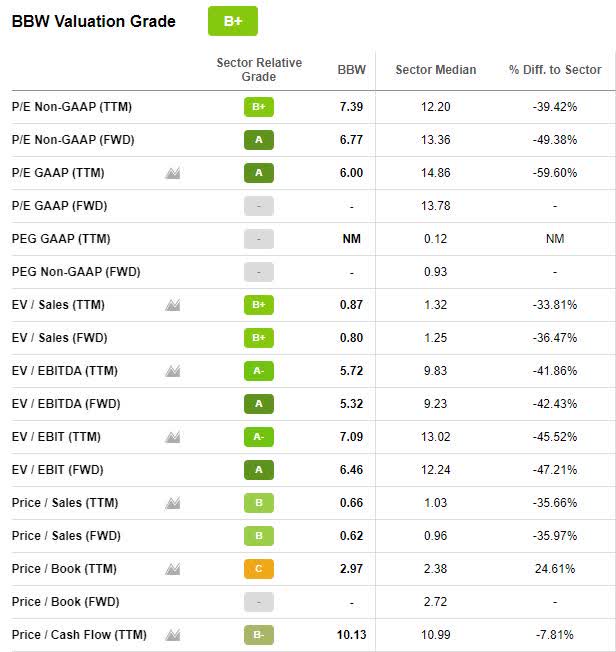
Investors use AFFO to calculate the profitability of a reit. This measure takes into account the real estate investment's income as well as its expenses. It is calculated subtracting capital expenditures from interest income that REITs may incur on their properties. It also calculates a REIT’s dividend-paying potential. This measure is non-GAAP and should be used along with other metrics to assess a REIT’s performance.
AFFO is a better measure of a REIT’s cash generation than net revenue. However, AFFO is not meant to replace free cash flow. It should also be used to determine the growth potential a REIT. It is also a better indicator of a REIT’s dividend potential. The AFFO payout ratio (AFRO), is 100 percent. This ratio can be calculated by subtracting a certain amount of AFFO from an average AFFO harvest. This ratio is calculated simply by dividing the average AFFO return by the average yield from all REITs for the period.

FFO is the most widely used valuation measure for REITs. It is a nonGAAP financial measure which shows the REIT’s liquidity generation. It can be found on the REIT’s income statements or cash flow statements. FFO includes depreciation and amortization. It excludes gains from the sale or loss of depreciable properties and one-time expenses. It also includes adjustments to unconsolidated partnerships or joint ventures.
FFO is a good measure of a REIT's net cash generation, but it does not give a full picture of a REIT's recurring cash flow. Add the cost of amortization, depreciation and other non-cash expenses to the income statement to calculate a REIT's net profit. This figure is typically listed in the footnotes. It can be calculated as a percentage or per-share.
In the first three quarters of 2016, the average FFO/price ratio was 17.3, compared to 19.7 in the previous quarter and 22 in 2015's second quarter. REITs in the 1Q15 first quartile gave a 10-percentagepoint premium to the constrained portfolio. All quartiles however exceeded the REIT Index. Over the longer term, this gap narrowed moderately. A close look at the properties owned by a specific REIT will provide a more accurate assessment of the company's performance.
FFO can be calculated per-share or per-quarter basis. FFO is used by most REITs to compensate for their cost accounting methods. In addition, some companies use FFO per share as a supplement to EPS. For more details, take a close look at the income statements of specific REITs.

FFO and AFFO can be used to evaluate REITs. They are not interchangeable. They should be used with other metrics to evaluate the REIT’s performance and profitability. It is also an important tool for evaluating the REIT's management.
FAQ
What is a fund mutual?
Mutual funds consist of pools of money investing in securities. They allow diversification to ensure that all types are represented in the pool. This helps reduce risk.
Mutual funds are managed by professional managers who look after the fund's investment decisions. Some funds let investors manage their portfolios.
Mutual funds are preferable to individual stocks for their simplicity and lower risk.
Why are marketable securities Important?
The main purpose of an investment company is to provide investors with income from investments. It does so by investing its assets across a variety of financial instruments including stocks, bonds, and securities. These securities offer investors attractive characteristics. They may be safe because they are backed with the full faith of the issuer.
A security's "marketability" is its most important attribute. This is how easy the security can trade on the stock exchange. If securities are not marketable, they cannot be purchased or sold without a broker.
Marketable securities include common stocks, preferred stocks, common stock, convertible debentures and unit trusts.
These securities can be invested by investment firms because they are more profitable than those that they invest in equities or shares.
What are some advantages of owning stocks?
Stocks are more volatile than bonds. The stock market will suffer if a company goes bust.
However, share prices will rise if a company is growing.
To raise capital, companies often issue new shares. Investors can then purchase more shares of the company.
To borrow money, companies can use debt finance. This allows them to borrow money cheaply, which allows them more growth.
A company that makes a good product is more likely to be bought by people. The stock will become more expensive as there is more demand.
The stock price will continue to rise as long that the company continues to make products that people like.
What is the role of the Securities and Exchange Commission?
The SEC regulates securities exchanges, broker-dealers, investment companies, and other entities involved in the distribution of securities. It enforces federal securities laws.
What is a Stock Exchange?
A stock exchange is where companies go to sell shares of their company. This allows investors to buy into the company. The market determines the price of a share. The market usually determines the price of the share based on what people will pay for it.
Investors can also make money by investing in the stock exchange. Investors are willing to invest capital in order for companies to grow. They buy shares in the company. Companies use their funds to fund projects and expand their business.
Stock exchanges can offer many types of shares. Some of these shares are called ordinary shares. These are the most popular type of shares. These are the most common type of shares. They can be purchased and sold on an open market. Prices for shares are determined by supply/demand.
Other types of shares include preferred shares and debt securities. When dividends are paid out, preferred shares have priority above other shares. A company issue bonds called debt securities, which must be repaid.
How can I select a reliable investment company?
It is important to find one that charges low fees, provides high-quality administration, and offers a diverse portfolio. Commonly, fees are charged depending on the security that you hold in your account. Some companies charge nothing for holding cash while others charge an annual flat fee, regardless of the amount you deposit. Others charge a percentage of your total assets.
It is also important to find out their performance history. Companies with poor performance records might not be right for you. Avoid companies with low net assets value (NAV), or very volatile NAVs.
Finally, it is important to review their investment philosophy. A company that invests in high-return investments should be open to taking risks. If they are unwilling to do so, then they may not be able to meet your expectations.
Why is a stock called security?
Security is an investment instrument whose value depends on another company. It may be issued by a corporation (e.g., shares), government (e.g., bonds), or other entity (e.g., preferred stocks). The issuer can promise to pay dividends or repay creditors any debts owed, and to return capital to investors in the event that the underlying assets lose value.
Statistics
- US resident who opens a new IBKR Pro individual or joint account receives a 0.25% rate reduction on margin loans. (nerdwallet.com)
- Individuals with very limited financial experience are either terrified by horror stories of average investors losing 50% of their portfolio value or are beguiled by "hot tips" that bear the promise of huge rewards but seldom pay off. (investopedia.com)
- For instance, an individual or entity that owns 100,000 shares of a company with one million outstanding shares would have a 10% ownership stake. (investopedia.com)
- The S&P 500 has grown about 10.5% per year since its establishment in the 1920s. (investopedia.com)
External Links
How To
How to Trade in Stock Market
Stock trading can be described as the buying and selling of stocks, bonds or commodities, currency, derivatives, or other assets. Trading is French for traiteur. This means that one buys and sellers. Traders trade securities to make money. They do this by buying and selling them. This is the oldest form of financial investment.
There are many ways you can invest in the stock exchange. There are three types of investing: active (passive), and hybrid (active). Passive investors do nothing except watch their investments grow while actively traded investors try to pick winning companies and profit from them. Hybrid investor combine these two approaches.
Index funds that track broad indexes such as the Dow Jones Industrial Average or S&P 500 are passive investments. This strategy is extremely popular since it allows you to reap all the benefits of diversification while not having to take on the risk. All you have to do is relax and let your investments take care of themselves.
Active investing involves selecting companies and studying their performance. The factors that active investors consider include earnings growth, return of equity, debt ratios and P/E ratios, cash flow, book values, dividend payout, management, share price history, and more. They will then decide whether or no to buy shares in the company. If they feel that the company is undervalued, they will buy shares and hope that the price goes up. They will wait for the price of the stock to fall if they believe the company has too much value.
Hybrid investing combines some aspects of both passive and active investing. A fund may track many stocks. However, you may also choose to invest in several companies. You would then put a portion of your portfolio in a passively managed fund, and another part in a group of actively managed funds.